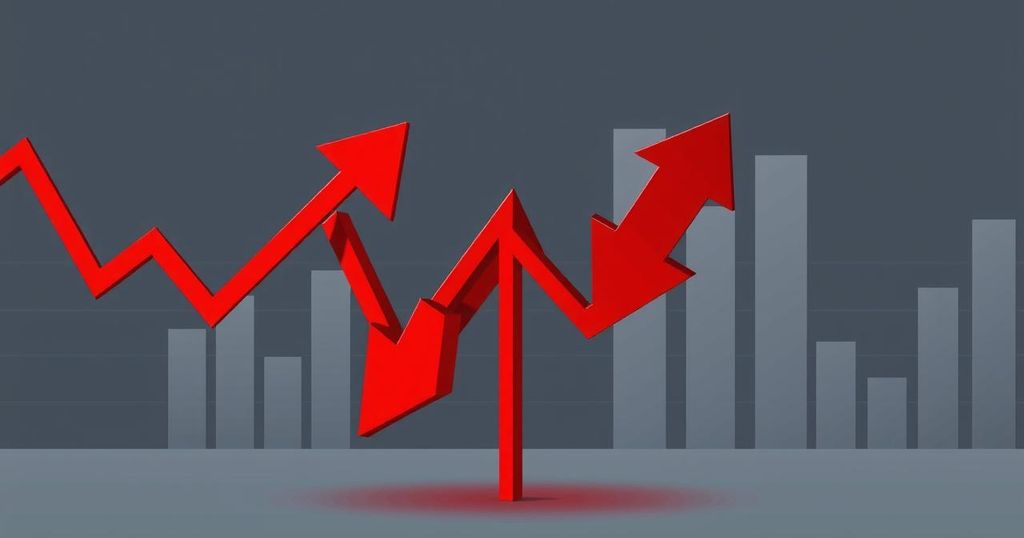Stock markets experienced a decline due to fears surrounding U.S. trade policies and potential economic recession. President Trump’s tariff strategies have created instability, while challenges in Germany also added to the tensions. Overall, investor confidence remains low amid economic uncertainties.
On Monday, stock markets experienced a downturn as apprehensions mounted regarding the implications of President Donald Trump’s trade policies on the economic growth of the United States and China. Wall Street’s primary indexes opened significantly lower, with the tech-heavy Nasdaq dropping two percent. Trump expressed a reluctance to make predictions about a potential recession during an interview, emphasizing a transitional period aimed at returning wealth to America.
Trump’s fluctuating tariff threats targeting Canada, Mexico, and China have contributed to market instability and consumer uncertainty. According to Susannah Streeter, head of money and markets at Hargreaves Lansdown, “unease about the effect of Trump’s tariffs hangs over financial markets at the start of the week,” highlighting concerns over the potential for a recession amid declining consumer confidence and increasing trade complexities.
Stock markets across London, Paris, and Frankfurt reflected similar declines as investor sentiment soured in response to Trump’s tariff strategies. David Morrison from Trade Nation noted that the unpredictable nature of Trump’s tactics has made it challenging for investors to adjust their expectations regarding the economic outlook, remarking on the “scatter-gun approach” taken by the President.
Additionally, economic developments in Europe also influenced market movements. The European Union indicated that the U.S. administration appeared uninterested in negotiating a deal to avoid tariffs on the bloc. Concerns arose regarding Germany’s incoming Chancellor Friedrich Merz, who may encounter opposition to his ambitious spending plan, which includes a significant infrastructure fund. Kathleen Brooks from the XTB trading platform pointed out that the political scenario in Germany has limited euro gains for the time being.
In response to economic data from China, which showed a 0.7 percent decline in consumer prices in February, markets in Hong Kong and Shanghai also registered falls. Stephen Innes from SPI Asset Management noted that such data underscores persistent deflationary pressures in China, the world’s second-largest economy. By the end of the trading session, all major indexes reported declines, reflecting the prevailing economic uncertainties.
The article underscores a notable slump in global stock markets driven by concerns over U.S. trade policies and economic health. President Trump’s tariff strategies have not only unsettled financial markets but also inflated fears of a potential recession. With mixed signals from both the U.S. and China, and political challenges in Germany, investor confidence remains shaky, highlighting the complex interplay of global economic factors influencing market performance.
Original Source: homenewshere.com




